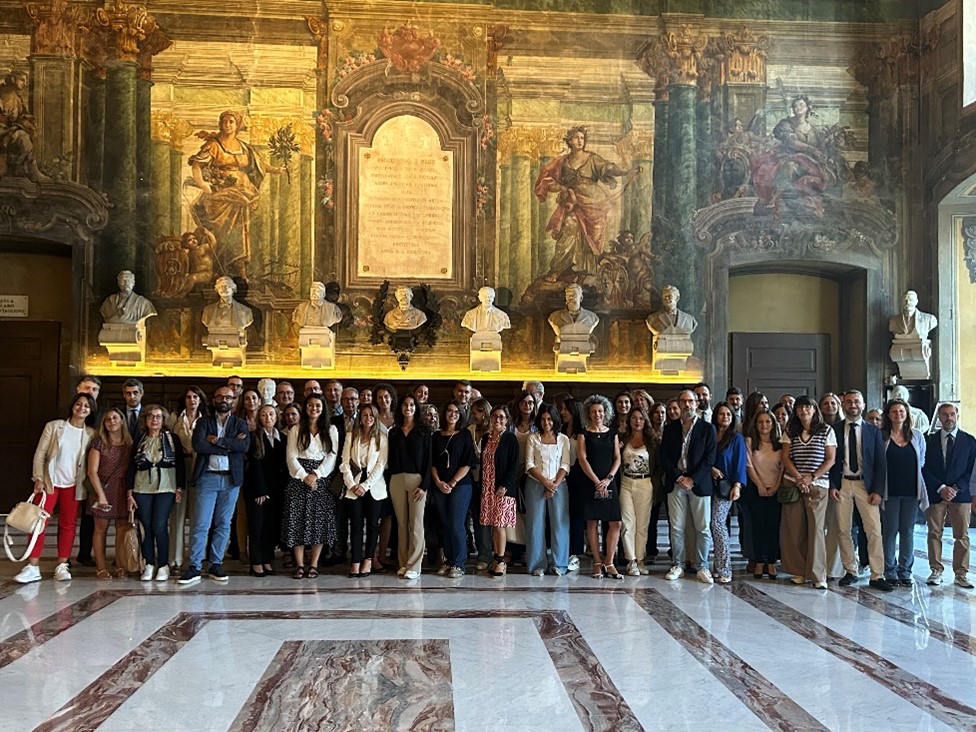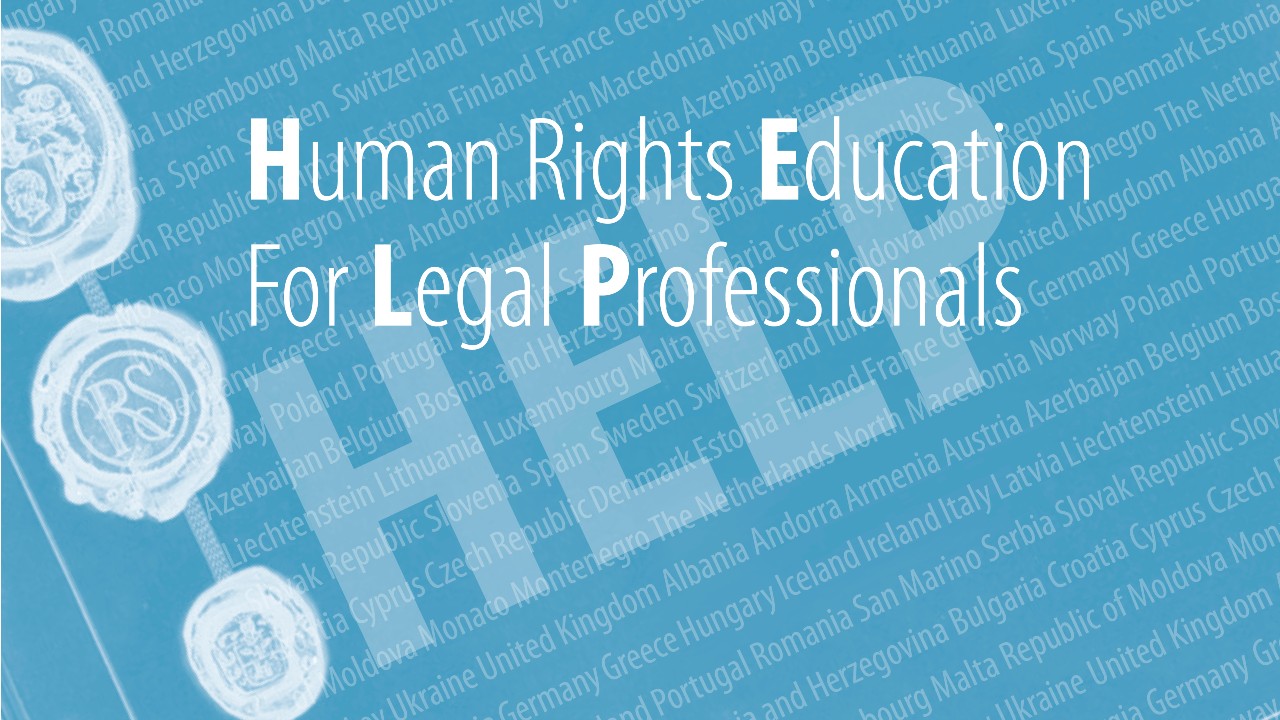On the 11th and 12th of October, the Council of Europe's Human Rights Education for Legal Professionals (HELP) Programme organised a Thematic Seminar in Napoli (Italy) focusing on "Judicial Reasoning and Human Rights". This event was held under the umbrella of the "EU-CoE Judicial Training on Rule of Law and Fundamental Rights” project, funded by the European Union Justice Programme (2021-2027). The HELP Thematic Seminar in Naples was a gathering of legal professionals (judges and prosecutors), scholars, and experts dedicated to improving the understanding of judicial reasoning in the context of human rights. The event aimed to provide a unique platform for participants to enhance their knowledge and skills in this critical area, contributing to more effective, rights-based decision-making in the judicial system.
The HELP Thematic Seminar on Judicial Reasoning had several objectives:
1. Enhancing Judicial Reasoning: One of the primary objectives of the seminar was to sharpen the analytical and reasoning skills of legal professionals when dealing with cases related to human rights.
2. Promoting the Rule of Law: The seminar emphasized the indispensable role of the rule of law in protecting and upholding human rights. By strengthening the understanding of legal principles and reasoning, it empowered legal professionals to be vigilant guardians of the rule of law.
3. Fostering Collaboration: The event encouraged collaborative learning and knowledge sharing among participants, promoting an exchange of ideas and experiences. This collaboration not only enriched the attendees' perspectives but also strengthened the network of legal professionals dedicated to human rights.
The HELP Thematic Seminar in Naples was instrumental in addressing several key areas:
1. Case Studies: Participants had the opportunity to analyse real-life cases and engage in in-depth discussions, providing them with valuable insights into the complexities of human rights issues.
2. Legal Methodology: The seminar enhanced participants' knowledge of legal reasoning methods, emphasizing the importance of reasoning that is firmly rooted in human rights standards.
3. Interactive Learning: Interactive sessions, group discussions, and practical exercises fostered an engaging learning environment where participants could share their experiences and learn from one another.
Moreover, the seminar marked the launch of the HELP course on “Judicial Reasoning and Human Rights” for 40 Italian judges and prosecutors, under the supervision of two distinguished HELP tutors: Monica Mastrandrea, Judge of the Court of Turin, and Simone Petralia, Judge of the Court of Caltanissetta.
The seminar began with welcoming speeches by Ana-Maria Telbis, Deputy Head of the Justice & Human Rights Training Unit, Council of Europe, and Gianluca Grasso, HELP Focal Point Italy, representing the Scuola Superiore della Magistratura (SSM). Emphasis was placed on the importance of reasoning firmly rooted in human rights standards, the significance of the event in promoting human rights education and the fruitful cooperation between CoE and Italian institutional partners.
The seminar addressed key aspects of judicial reasoning and human rights through a rich array of thematic panels. On the first day: Angelo Abignente, Professor of Theory of Interpretation and Legal Argumentation at the University Federico II outlined the main founding theories of the notion of human rights and dwelled on the complex process of balancing rights in the judicial reasoning; Fabrizio Amendola, Member of the Labour Section of the Supreme Court of Cassation provided participants with valuable insights into the evolving role of judges within the human rights framework; Emanuela Attura, Investigating Judge at the Rome Tribunal, focused on decisional reasoning in the context of international cooperation, with specific reference to the European Investigation Order (EIO).
On the second day: Raffaele Sabato, Italian Judge at the European Court of Human Rights (ECtHR) provided participants with a comprehensive understanding of judicial reasoning under the ECtHR and other pertinent Convention articles; Daniela Ranalli, Legal Officer, Execution of Judgments of the European Court of Human Rights, Council of Europe examined the topic of the judicial reasoning from the perspective of the execution of ECtHR judgments.
The training day continued with a workshop on case-law analysis, which enabled participants to apply their knowledge to real cases, thus fostering practical expertise in judicial reasoning. The workshop was conducted by certified HELP tutors who oversaw the implementation of HELP courses launched in May 2023, each contributing their expertise to enrich the participants' learning experience. The HELP courses tutors included Giovanna Bilò, Seconded judge at the Registry of the European Court of Human Rights; Beatrice Magarò, Judge at the First Civil Section of the Court of Appeal of Catanzaro; Elisa Scorza, Seconded judge at the Registry of the European Court of Human Rights; and Emanuela Vitello, Judge at the Court of Appeal of L'Aquila, specializing in labour law.
|
|
|
|
|
|
A special moment of recognition was reserved for participants who had successfully completed one of the tutored HELP courses launched in May 2023, namely: The Environment and Human Rights, International Cooperation in Criminal Matters, Asylum and Human Rights (this one jointly developed with the UNHCR), Data Protection and Privacy Rights. A ceremony was held to recognise the commitment of the participants and to deliver them their certificates of accomplishment.
The seminar also included a presentation of the HELP Programme and the wide range of courses available in the HELP online platform.
*******************
The HELP course on Judicial Reasoning and Human Rights
This online course provides a comprehensive overview of judicial reasoning and justice quality standards relating to criminal and civil proceedings, case-law and good practices.
The course is interactive and composed of 7 substantive modules:
- Introduction
- Judicial reasoning and fair trial
- Judicial reasoning in criminal proceedings – Pre-trial stage
- Judicial reasoning in criminal proceedings – Trial, Appeal and Enforcement of Judgments
- Judicial reasoning in non-criminal proceedings – General Principles
- Judicial reasoning in non-criminal proceedings – Thematic Issues I
- Judicial reasoning in non-criminal proceedings – Thematic Issues II
The course is primarily addressed to all legal professionals (judges, prosecutors, lawyers or court staff). It can also be used by other public authorities, including national human rights institutions, public administration staff, parliamentary staff, etc. It can also be a great resource for university students or civil society organisations.





